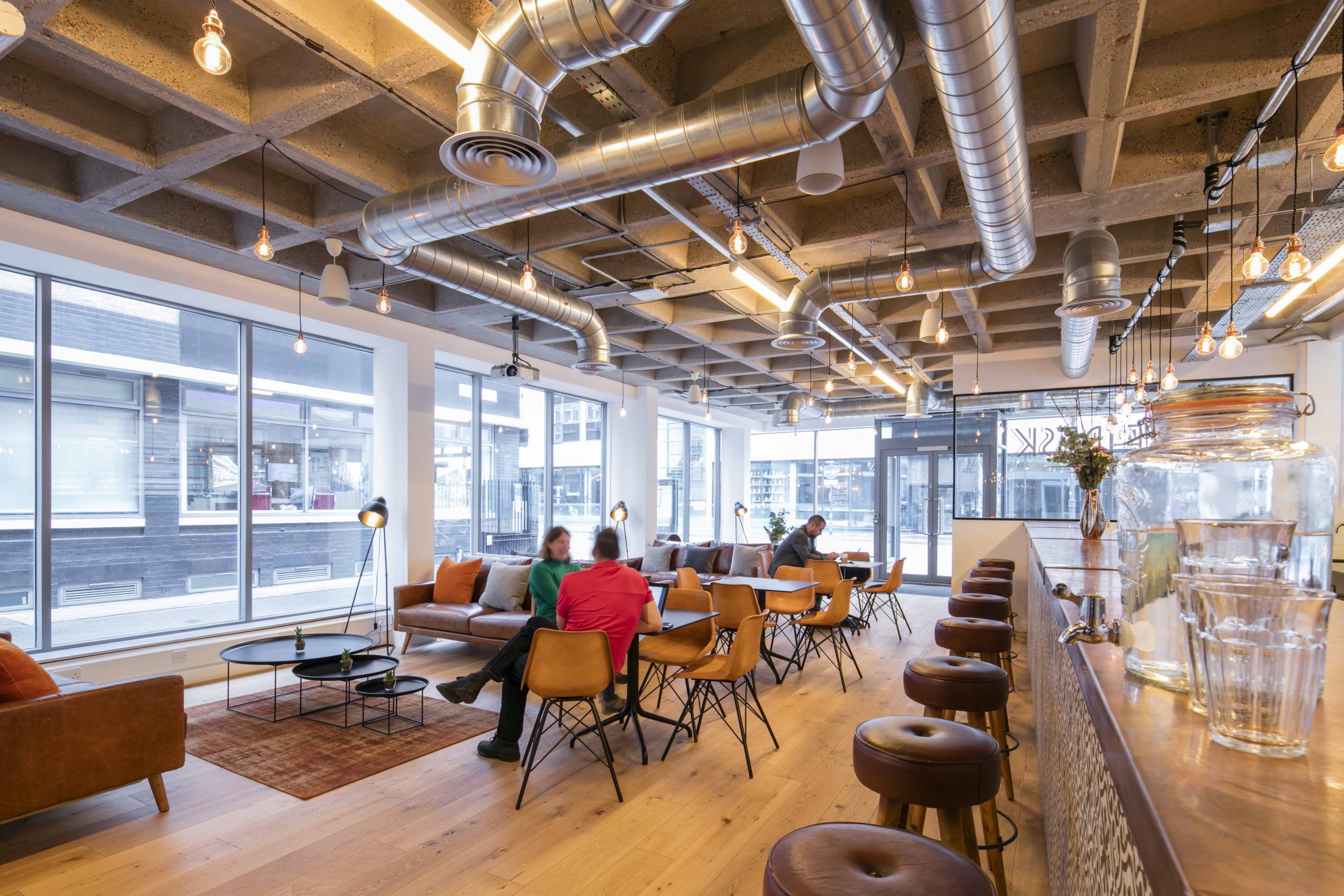A recent survey conducted by London office consultant O&A Property, found that most people do want to return from the office, at least part of the week, although they want an increased level of flexibility from their employers, and would also feel happier if their colleagues tested for Covid frequently and had the vaccination.
A third of office workers from a typical commuter town near London, think people should have the vaccine and prove it before returning to the office, according to a recent survey into office workers’ attitudes to returning to the office, and a further 24% agree that people should have the vaccine, but don’t think you can ask for Covid vaccine certificates.
And 60% of respondents think office workers should test themselves at least once a week with 23% thinking workers should take the test several times a week, to be completely sure they are not risking spreading the virus throughout offices.
Surprisingly, more respondents are worried about the resumed cost of commuting (44%), than the risk of catching Covid-19 when returning to the office (33%). The cost of a season ticket into London for commuters can run into the thousands per annum.
However, most people DO want to return to the office for at least part of the week, citing missing their workmates as the main reason. A significant 64% of office workers miss collaborating and sharing ideas with their workmates, and 62% miss socialising with their workmates, with half of respondents missing the divide between home and the office.
The ideal number of days in the office – as opposed to working from home – is two days a week, according to 51% of respondents, over half of whom travel into London to their office. And only 19% would rather work from home full-time.
Peter Dudley, MD of O&A Property says: “The results about people wanting to return to offices are not really surprising – after over a year of working from home, people are definitely getting zoom fatigue and are missing the office and primarily the face-to-face contact with their colleagues, both work-wise, and from a socialising perspective. In the first lockdown, people hadn’t worked from home before, so it was an interesting thing to do.
“But now, as working from home all the time becomes increasingly difficult with family distractions and lack of proper workspace and kit, and the need to reconnect with workmates becomes more and more pressing from a productivity viewpoint, we think there will be a steady return to the office throughout the summer. The drive to return to the office environment is there: from both employers and, as this survey shows, employees.
“A key finding from this survey*, which polled a typical commuter town into London in the UK, is that the majority of individuals want to go back to the office (81%), even though many of them want to go into the office for fewer days of the week. We found that the vast majority (81%) would feel happier about returning to the office if there were more flexibility in terms of how often they were in the office. And this compares to 30% of people who would feel happier returning if strict Covid protection measures were in place – so flexible working is definitely up there in the top spot for employees going back.
“Also half of respondents would feel happier returning if there were fewer people in the office each day; and this also works with the idea of flexible working and rota-office working for employees.”
A further quarter of respondents would feel happier about returning to the office if it was nearer to their home. And 20% would like their office to be near to green space, so they can get out into the fresh air in the daytime easily. 10% would be more positive about returning if they could take their pet into the office with them.
Many companies are planning to reduce some of the time that they expect their employees to be in the office, although, with a huge preference from office workers to have fewer people in their office at any one time, this does not mean that employers will be able to give up their office space.
In fact, according to the experts, the demand for office space appears to be on the up again. “The demand for office space is now exceeding the normality of 2019,” says Peter Dudley. “And in the past few weeks, the regional demand for office space has been soaring too. There is certainly an appetite for both employers and employees to look at other towns and cities in the UK for office space – many people like the thought of working closer to their homes now, having got used to a year of working from home.
“What we’re finding is that clients are reducing the amount of office space they will need, as they adopt a more hybrid model of working, but the way that they are looking to use the office space will be very different, with much more breakout and collaborative spaces, as this is what they have missed by working from home. Also, much more attention is being paid to employees’ mental health and working environment needs than before as this becomes more of a crucial issue for business.”
Dudley says that his survey has found that people are optimistic that their employers are on the same page as them: “most of them (two thirds) think their bosses will expect them to return to the office for part of the week, with only a 5th of workers expecting to be told to return every day of the week. So luckily it looks like there is a level of agreement between businesses and their workers” he says.
*O&A Property







